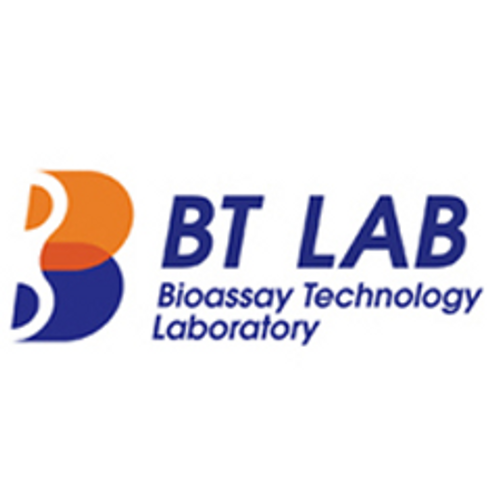Product Description
Mouse Adrenomedullin (ADM) ELISA Kit | AE23997MO | Abebio
Species Reactivity: Mouse (Mus musculus)
Abbreviation: ADM
Alternative Name: AM; preproadrenomedullin
Application: ELISA
Range: 12.35-1000 pg/mL
Sensitivity: 4.37 pg/mL
Intra-Assay: ≤4.6%
Inter-Assay: ≤8.3%
Recovery: 0, 83
Sample Type: Serum, Plasma, Other biological fluids
Detection Method: Sandwich
Analysis Method : Quantitive
Test Principale: This assay employs a two-site sandwich ELISA to quantitate ADM in samples. An antibody specific for ADM has been pre-coated onto a microplate. Standards and samples are pipetted into the wells and anyADM present is bound by the immobilized antibody. After removing any unbound substances, a biotin-conjugated antibody specific for ADM is added to the wells. After washing, Streptavidin conjugated Horseradish Peroxidase (HRP) is added to the wells. Following a wash to remove any unbound avidin-enzyme reagent, a substrate solution is added to the wells and color develops in proportion to the amount of ADM bound in the initial step. The color development is stopped and the intensity of the color is measured.
Product Overview: Adrenomedullin (ADM) is a peptide associated with pheochromocytoma. Adrenomedullin (AM) is a ubiquitously expressed peptide initially isolated from phaechromyctoma. Adrenomedullin, a hypotensive peptide found in human pheochromocytoma, consists of 52 amino acids, has 1 intramolecular disulfide bond, and shows a slight homology with the calcitonin gene-related peptide. It may function as a hormone in circulation control because it is found in blood in a considerable concentration. The precursor, called preproadrenomedullin, is 185 amino acids long. By RNA-blot analysis, human adrenomedullin mRNA was found to be highly expressed in several tissues. The human AM gene is localized to a single locus on Chromosome 11 with 4 exons and 3 introns.
Stability: The stability of ELISA kit is determined by the loss rate of activity. The loss rate of this kit is less than 5% within the expiration date under appropriate storage condition. The loss rate was determined by accelerated thermal degradation test. Keep the kit at 37°C for 4 and 7 days, and compare O.D.values of the kit kept at 37°C with that of at recommended temperature. (referring from China Biological Products Standard, which was calculated by the Arrhenius equation. For ELISA kit, 4 days storage at 37°C can be considered as 6 months at 2 - 8°C, which means 7 days at 37°C equaling 12 months at 2 - 8°C) .
 Euro
Euro
 USD
USD
 British Pound
British Pound
 NULL
NULL








